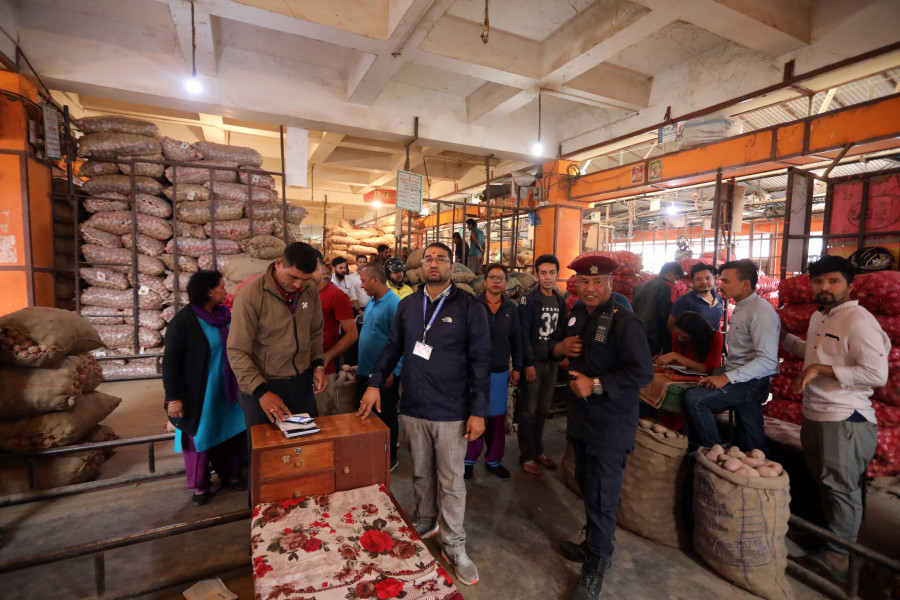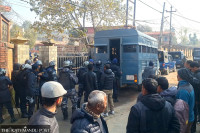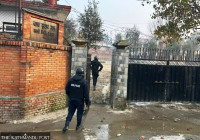Valley
Kathmandu Metropolitan City inspects 123 shops in 22 days
Consumer right activists say the city’s work is inadequate, and it is monitoring the market during the festivities only for the sake of it.
Anup Ojha
In a bid to prevent artificial shortages of essential goods during the upcoming festive season, Kathmandu Metropolitan City authorities started inspecting the market three weeks ago under the leadership of Deputy Mayor Hari Prabha Khadgi.
The monitoring committee, which comprised officials from the Department of Food Technology and Quality Control and Nepal Chamber of Commerce, inspected 123 shops, and four wholesale outlets in the last 22 days, said Khadgi. “We confiscated 13,262 kg onions. We found that some shops were selling onions for Rs 130 per kg, even when they bought it for Rs 46 per kg.”
Consumer rights activists, however, say the city should monitor the market at all times, and not just during festivals.
“Whatever city officials have done is for the sake of publicity,” said Jyoti Baniya, chairperson at Forum for Protection of Consumer Rights, Nepal. He said that if officials were serious about monitoring the market, the richest and biggest metropolitan city in the country would roll out its Market Management Act.
“The constitution of Nepal empowers all the local units to draft their local market laws, but the city has not made such a law. Without the law, how can it monitor the market properly?” questioned Baniya.
According to Baniya, municipalities such as Kaliya Sub-metropolitan City, Damak Municipality, Bhimeshwor Municipality, Waling Municipality, Tansen Municipality, Birendranagar Municipality, Tikapur Municipality and Itahari Municipality have already formulate their own local market monitoring laws.
Deputy Mayor Khadgi said that the Consumer Protection Act 2075 (2018) was used to fine 26 shops for not complying with the rules. She added that the same law was used to detain shop owners from Balkhu and Kalimati for overcharging customers buying onions.
The inspection team destroyed food items such as edible oil, biscuits, flour, noodles, bottled water, drinks, milk and sweets that had already expired but were being sold in 11 shops.
“We also found that 76 grocery shops were running without being registered. We have given them a week to register themselves,” said Khadgi.
But Baniya is not impressed. He said that the city should have done more for its citizens during the festivities. “It could have opened a shop to sell essential items at reduced prices. But still the federal government is running such shops,” said Baniya. “What has the local government done for its citizens so far?” he questioned.




 20.12°C Kathmandu
20.12°C Kathmandu.jpg)












